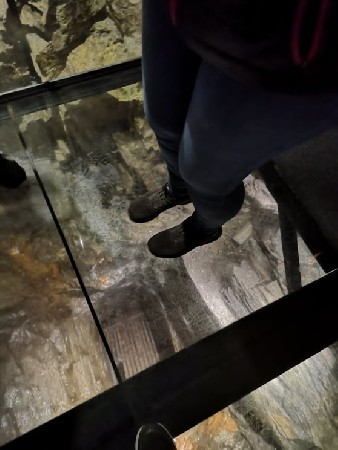Traveling with Anxiety or Depression, Yes, You Can!

Many people think that having a mental health diagnosis means their dream of exploring the world has to be put on hold. That's not true. With some planning and self-care, traveling can become a source of mastery, joy, and new perspectives, even when you live with anxiety or depressive disorders.
Understanding Anxiety and Depression
In Psychiatry for Health and Social Care Education, Jannike Engelstad Snoek and Knut Engedal describe anxiety disorders as persistent, exaggerated fear triggered by situations that aren't actually dangerous. Your body reacts as if you're facing a real threat: racing heart, sweating, restlessness, and catastrophic thoughts. This can lead to avoidance and isolation.
Depression is marked by ongoing low mood, loss of interest or pleasure, and low energy. Many people also experience guilt, concentration problems, sleep disturbances, or changes in appetite. Both conditions can be mild or severe, but they're common and treatable. Many people live fulfilling lives and they can travel.
Why Travel Can Be Positive
Travel can offer hope, mastery, and fresh perspectives. Seeing new places can lift your mood, break negative thought patterns, and create memories that build confidence. But traveling can also be stressful: unfamiliar surroundings, routine changes, and unpredictable events may trigger symptoms. Preparation and flexibility are key.
My Top Tips for Safe and Enjoyable Travel
1. Plan with Your Health in Mind
-
Talk to your healthcare provider first. Are you stable? Do medication doses or routines need adjusting?
-
Choose a destination that feels manageable. You don't have to start with backpacking across South America. Maybe a nearby city or a place where you speak the language is better for your first step.
-
Keep your itinerary flexible. Avoid packing your days too full, leave room for rest.
2. Pack for Peace of Mind
-
Bring enough medication plus prescriptions and documentation. Keep medications in your carry-on.
-
Write down important numbers: your therapist or doctor, a trusted friend or family member, and local emergency contacts.
-
Take small comfort items: music, a book, a scarf, or anything familiar that calms you.
3. Maintain Routines and Self-Care
-
Try to keep regular sleep and meal schedules.
-
Make time for physical activity, even a gentle walk can ease anxiety or low mood.
-
Use breathing techniques, mindfulness, or other coping tools you've practiced at home.
4. Travel with Support or Inform Your Companions
If you're traveling with others, be open about what you might need. Maybe you'll need a quiet day or a short break from sightseeing. Most people are happy to support you, if they know how.
5. Be Kind to Yourself on the Road
Some days may feel heavier than others. It's not a failure to spend a day resting at your hotel or to change your plans. Small moments, a sunset, a friendly chat, or a good cup of coffee, can be big victories.
6. Have a "Plan B"
Decide what you'll do if anxiety or depression becomes overwhelming: retreat to a quiet place, call a friend back home, or seek local medical help. Simply having a plan can bring peace of mind.
Closing Thoughts
Anxiety and depression don't have to end your travel dreams. With preparation, flexibility, and self-compassion, you can see the world on your terms. Travel can even become part of your healing journey, a reminder that life has so much to offer, even when it feels heavy.